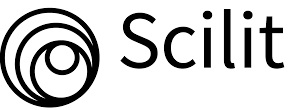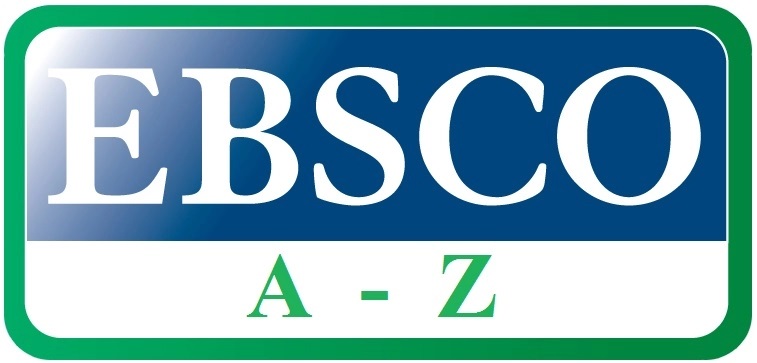PENGARUH PEMANASAN DAN ASAL EKSPLAN PADA PERTUMBUHAN DAN PERKEMBANGAN BAWANG MERAH (Allium ascolonicum L.)
Abstract
Tanaman bawang merah (Allium ascolonicum L) termasuk dalam genus Allium sp yang diperbanyak secara
vegetatif melalui umbi. Perbanyakan benih bawang sudah dilakukan secara in vitro (konvensional), untuk tujuan
peningkatan mutu atau hanya perbanyakan tanaman . Penelitian dilaksanakan di Laboratorium Kultur Jaringan
Balai Penelitian Tanaman Sayuran, pada bulan Februari sampai Agustus 2014. Untuk menghasilkan tanaman
bebas penyakit terutama virus dapat digunakan teknik kultur jaringan yang dikombinasikan dengan perlakuan
pemanasan. Penelitian bertujuan untuk melihat pengaruh pemanasan dan sumber eksplan terhadap pertumbuhan
dan perkembangan eksplan bawang merah.. Perlakuan pemanasan bahan eksplan bawang merah dilakukan secara
bertahap selama 4 minggu, masing-masing 1 minggu untuk suhu (30, 33, 35 dan 37 oC). Media yang dipergunakan
untuk penumbuhan eksplan adalah MS + MS vits + sucrose 30 g/l + IAA 2 mg/l + Kinetin 2 mg/l + GA3 0.01
mg/l agar gelgro 2 g/l pH 5.7. Penelitian terdiri dari 2 kegiatan yaitu Perlakuan pada cv. Pikatan, dan pada cv.
Bima Brebes. Sebagai eksplan dipergunakan yaitu (1/3 bulb/ umbi) dan (shoot tip/ jaringan meristematik dengan
beberapa daun primordia). Perlakuan eksplan yang digunakan yaitu tanpa pemanasan dan dengan pemanasan.
Pertumbuhan dan perkembangan dari planlet diamati pada penelitian ini. Hasil dari penelitian menunjukkan
bahwa perlakuan pemanasan bahan eksplan bawang merah cv. Bima Brebes, belum menurunkan persentase planlet
yang terinfeksi virus. Eksplan (1/3 bulb) dan (shoot tip), mempunyai pertumbuhan eksplan diatas 50%. Umumnya
semakin kecil eksplan persentase planlet abnormal semakin tinggi. Kontaminasi kultur umumnya disebabkan
bakteri dan jamur yang terbawa dari eksplan (endogen). Perlakuan pemanasan bahan eksplan bawang merah secara
visual tidak berpengaruh pada persentase pertumbuhan dan persentase kultur terkontaminasi.
Kata kunci: Bawang merah, Allium ascolonicum L, pemanasan, asal eksplan
ABSTRACT
Red onion plants (Allium ascolonicum L) are included in the genus Allium sp which is propagated
vegetatively through tubers. Propagation of onion seeds has been done in vitro (conventionally), for the purpose
of quality improvement or only plant propagation. The research was carried out at the Tissue Culture Laboratory,
Balai Penelitian Tanaman Sayuran (Balitsa) from February to August 2014. To produce plants free of mainly viral
diseases can be used tissue culture techniques combined with heating treatment. Research aims were to look at
the effect of heating and explants on the growth and development of red onion explants. The treatment of the onion
explants was heated gradually for 4 weeks, 1 week each for temperatures (30, 33, 35 and 37 oC). The media used
for the growth of explants is MS + MS vits + sucrose 30 g / l + IAA 2 mg / l + Kinetin 2 mg / l + GA3 0.01 mg / l
so that gelgro 2 g / l pH 5.7. The study consisted of 2 activities, namely, treatment at cv. Pikatan, and at cv. Bima
Brebes. As explants it is used (1/3 bulb / tuber) and (shoot tip / meristematic tissue with several leaves of
primordia). The explants treatment used are without heating and by heating. Growth and development of plantlets
was observed in this study. The results showed that the heating treatment of explants onions cv. Bima Brebes, has
not reduced the percentage of plantlets infected with the virus. Explants (1/3 bulb) and (Shoot tip), have explants
growth above 50%. Generally the smaller explants the higher percentage of abnormal plantlets. Culture
contamination is generally caused by bacteria and fungi that are carried away from explants (endogenous). The
treatment of heating the onion explants material visually had no effect on the percentage of growth and percentage
of contaminated culture.
Keywords: red onion, Allium ascolonicum L, heating treatment, source of explant
vegetatif melalui umbi. Perbanyakan benih bawang sudah dilakukan secara in vitro (konvensional), untuk tujuan
peningkatan mutu atau hanya perbanyakan tanaman . Penelitian dilaksanakan di Laboratorium Kultur Jaringan
Balai Penelitian Tanaman Sayuran, pada bulan Februari sampai Agustus 2014. Untuk menghasilkan tanaman
bebas penyakit terutama virus dapat digunakan teknik kultur jaringan yang dikombinasikan dengan perlakuan
pemanasan. Penelitian bertujuan untuk melihat pengaruh pemanasan dan sumber eksplan terhadap pertumbuhan
dan perkembangan eksplan bawang merah.. Perlakuan pemanasan bahan eksplan bawang merah dilakukan secara
bertahap selama 4 minggu, masing-masing 1 minggu untuk suhu (30, 33, 35 dan 37 oC). Media yang dipergunakan
untuk penumbuhan eksplan adalah MS + MS vits + sucrose 30 g/l + IAA 2 mg/l + Kinetin 2 mg/l + GA3 0.01
mg/l agar gelgro 2 g/l pH 5.7. Penelitian terdiri dari 2 kegiatan yaitu Perlakuan pada cv. Pikatan, dan pada cv.
Bima Brebes. Sebagai eksplan dipergunakan yaitu (1/3 bulb/ umbi) dan (shoot tip/ jaringan meristematik dengan
beberapa daun primordia). Perlakuan eksplan yang digunakan yaitu tanpa pemanasan dan dengan pemanasan.
Pertumbuhan dan perkembangan dari planlet diamati pada penelitian ini. Hasil dari penelitian menunjukkan
bahwa perlakuan pemanasan bahan eksplan bawang merah cv. Bima Brebes, belum menurunkan persentase planlet
yang terinfeksi virus. Eksplan (1/3 bulb) dan (shoot tip), mempunyai pertumbuhan eksplan diatas 50%. Umumnya
semakin kecil eksplan persentase planlet abnormal semakin tinggi. Kontaminasi kultur umumnya disebabkan
bakteri dan jamur yang terbawa dari eksplan (endogen). Perlakuan pemanasan bahan eksplan bawang merah secara
visual tidak berpengaruh pada persentase pertumbuhan dan persentase kultur terkontaminasi.
Kata kunci: Bawang merah, Allium ascolonicum L, pemanasan, asal eksplan
ABSTRACT
Red onion plants (Allium ascolonicum L) are included in the genus Allium sp which is propagated
vegetatively through tubers. Propagation of onion seeds has been done in vitro (conventionally), for the purpose
of quality improvement or only plant propagation. The research was carried out at the Tissue Culture Laboratory,
Balai Penelitian Tanaman Sayuran (Balitsa) from February to August 2014. To produce plants free of mainly viral
diseases can be used tissue culture techniques combined with heating treatment. Research aims were to look at
the effect of heating and explants on the growth and development of red onion explants. The treatment of the onion
explants was heated gradually for 4 weeks, 1 week each for temperatures (30, 33, 35 and 37 oC). The media used
for the growth of explants is MS + MS vits + sucrose 30 g / l + IAA 2 mg / l + Kinetin 2 mg / l + GA3 0.01 mg / l
so that gelgro 2 g / l pH 5.7. The study consisted of 2 activities, namely, treatment at cv. Pikatan, and at cv. Bima
Brebes. As explants it is used (1/3 bulb / tuber) and (shoot tip / meristematic tissue with several leaves of
primordia). The explants treatment used are without heating and by heating. Growth and development of plantlets
was observed in this study. The results showed that the heating treatment of explants onions cv. Bima Brebes, has
not reduced the percentage of plantlets infected with the virus. Explants (1/3 bulb) and (Shoot tip), have explants
growth above 50%. Generally the smaller explants the higher percentage of abnormal plantlets. Culture
contamination is generally caused by bacteria and fungi that are carried away from explants (endogenous). The
treatment of heating the onion explants material visually had no effect on the percentage of growth and percentage
of contaminated culture.
Keywords: red onion, Allium ascolonicum L, heating treatment, source of explant
Full Text:
PDFRefbacks
- There are currently no refbacks.












